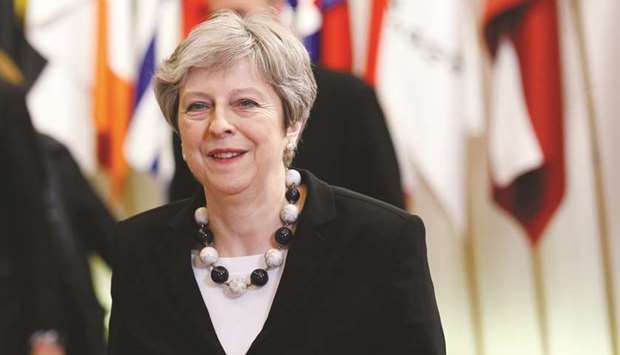The leaders of Britain, France and Germany have reiterated their commitment to the Iran nuclear deal "as the best way of neutralising the threat of a nuclear-armed Iran", Downing Street said on Sunday.
Prime Minister Theresa May talked by phone with French President Emmanuel Macron and German Chancellor Angela Merkel on Saturday and Sunday when they agreed the current deal also left out some "important elements," it said."Our priority as an international community remained preventing Iran from developing a nuclear weapon," it said.
"They agreed that there were important elements that the deal does not cover but which we need to address -- including ballistic missiles, what happens when the deal expires, and Iran's destabilising regional activity.
"They committed to continue working closely together and with the US on how to tackle the range of challenges that Iran poses -- including those issues that a new deal might cover."
Both Macron and Merkel held talks in Washington this week with US President Donald Trump, who has repeatedly threatened to quit the 2015 pact with Iran negotiated by his predecessor Barack Obama.
The pair tried to sell Trump on the idea of the deal being a stepping stone to a longer-term, broader agreement, pitching a "four pillars" solution.
The first column is Iran's nuclear programme under the current accord.
The others would target the country's nuclear activities after 2025 when so-called sunset clauses kick in, beef up global leverage against its regional influence and curtail its ballistic missile program.
US National Security Adviser John Bolton said on Sunday that Trump had not yet decided whether or not to scrap the pact.
"He has made no decision on the nuclear deal, whether to stay in or get out," he told Fox News.

